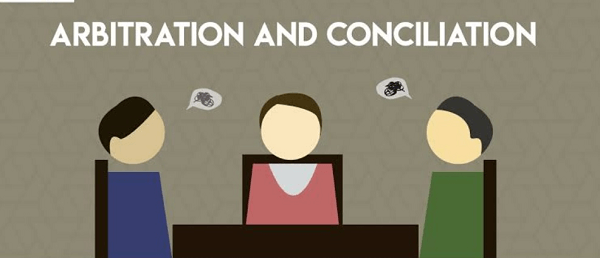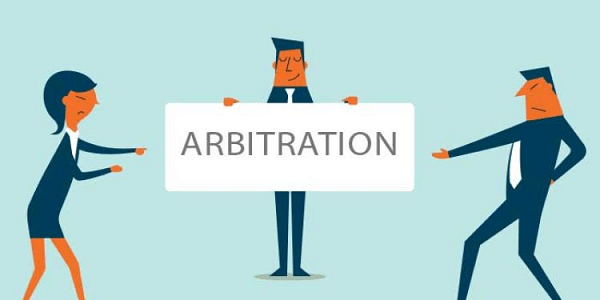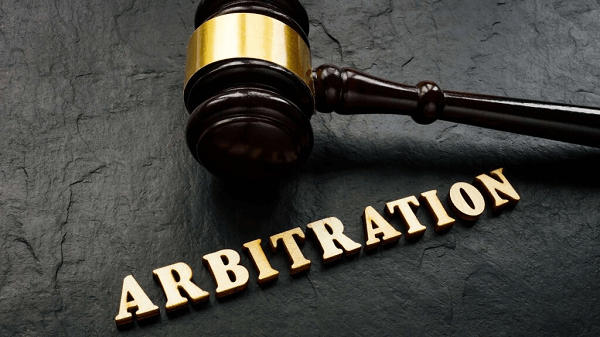Difference Between Arbitration and ConciliationIntroductionThere were 29 million cases outstanding in Indian courts as of 2018. According to the strategy document provided by NITI Aayog at the time, it would take more than 324 years to finish them all up with the number of judges that had been assigned. By now, their numbers have undoubtedly increased. The numbers unequivocally demonstrate the pressures placed on the Indian court as well as the public's lengthy impression of the Indian legal system. 
The typical litigation process is also quite time-consuming, making it inefficient in terms of money and time in many conflicts. People nowadays are thinking about alternate conflict settlement methods in light of this circumstance. Two of these alternate conflict resolution methods are Arbitration and Conciliation. A Short Introduction to Arbitration and ConciliationAlternatives to traditional litigation include three well-known strategies. Conflict resolution and Arbitration are two of them. These two alternative dispute resolution procedures are utilized to settle conflicts involving two or more parties. Both of these strategies seek to avoid the need for a drawn-out and expensive court trial by settling the dispute in a just and agreeable way to all parties. A few significant variations between Arbitration and Conciliation are crucial to comprehend, even if both processes aim to save the parties money and time. In order to assist the reader in choosing the most effective course of action for their particular situation, this article aims to offer an overview of the fundamental distinctions between Arbitration and Conciliation. 
Arbitration can be explained as a legal dispute resolution process where, under the provisions of the Arbitration and Conciliation Act 1996, an impartial body of people, collectively known as an arbitral tribunal, is appointed whose main role is to hear the arguments of both parties. Considering all relevant evidence and dispute then make a binding decision, commonly known as an arbitral award, on the parties to their dispute based on the reasons and evidence presented to them. Unless it is established that the award was influenced by fraud or corruption against the parties, the tribunal's judgment is final, binding, and enforceable against them. There is no right of appeal available. Disputes involving contractual responsibilities pertaining to employment, construction, and other commercial problems are frequently resolved through the use of Arbitration as a dispute resolution tool. Due to the fact that Arbitration is typically quicker, more casual, and less expensive for the parties to the dispute than traditional court litigation, it is frequently utilized as a substitute for it. Conciliation, on the other hand, is a non-binding process where a neutral party, known as a conciliator, is appointed. The conciliator's primary responsibility is to assist the parties in reaching a mutually acceptable resolution to their dispute by helping them come to an understanding through Communication. The conciliator is able to make recommendations to the parties in his or her capacity. Still, he or she is not able to provide a final judgment that applies to all parties. When there is a chance that the conflict can be settled via discussion, such as in family law or employment disputes or disputes involving personal or emotional difficulties, this approach is generally employed to settle the matter. Conciliation is frequently utilized as a stage before litigation or Arbitration since it typically saves the parties time and money. The decision between the two redressal processes solely depends on the dispute's particulars; each has distinct benefits and drawbacks. The two redressal strategies were addressed above. The nature of the disagreement, the desired resolution, and any other particular requirements each party may have should be considered when deciding between these two approaches. It is easier for parties to choose the most suitable mechanism for their specific dispute when they are informed about the differences between the two redressal processes and have a thorough grasp of them. Legal advisors frequently aid parties in determining the most effective dispute resolution method for their particular situation. Definition of ArbitrationArbitration is a strong tool to use when there are disagreements between an organization and its employees. It is a procedure wherein a neutral third party evaluates the negotiation situation, hears from both sides, gathers the relevant information, and makes recommendations that are binding on the parties involved. 
Labor and management conflict resolution through Arbitration has been shown effective. The parties themselves choose the arbitrators and the judgment they provide. A written opinion with justifications is included with the arbitrator's ruling and the decision. In comparison to courts and tribunals, the process is also rather quick. The procedure is a little pricey, though, and if the arbitrator is chosen incorrectly, the decision will be arbitrary. Process of Arbitration
Process Of ArbitrationThe phases of Arbitration, or the procedure for Arbitration, are as follows: 1. Arbitration ClauseA contract provision that expressly states that, in the event of a dispute between the parties, the matter shall be settled by Arbitration. 2. Arbitration NotificationWhenever a disagreement arises, and a party chooses to use the arbitration procedure, the party who has been defaulted upon will submit an arbitration notice to the other party to start the arbitration process. 3. Appointment of ArbitratorsAfter receipt of the other parties' notification, both parties shall proceed to the appointment of the arbitrators in accordance with the terms of the arbitration agreement or arbitration clause. 4. Statement of ClaimThe next stage in an arbitration procedure in India is to create a statement of claim. The dispute between the parties, the circumstances that gave rise to the dispute, and the damages sought from the defaulting party are all contained in the statement of claim. Together with a response to the statement of claim, the opposing party may also file a statement of the counterclaim. Top arbitration attorneys can help you with your statement of claim, reply to the statement of claim, or counterclaim. 5. Hearing of PartiesParties will be heard by the arbitral tribunal, together with their evidence. 6. AwardAfter hearing the parties, the arbitral tribunal makes an award. The decision of the court is called the "Award" and is binding on the parties. However, the arbitration award can be appealed to a higher court. 7. Execution of the Court DecisionOnce the court has passed the decision, it must be executed. The party in whose favor the award is made must, with the help of a good arbitration attorney, seek enforcement or enforcement of the award. Arbitration proceedings in India are not required to follow the Civil Process Code's 1908 list of procedures, and neither the arbitrator nor the arbitral panel is required to do so (1). The following is the authority of an arbitrator in India:
In addition to the powers mentioned above, the arbitrator is also given certain civil powers under the Civil Procedure Act
Definition of ConciliationIn a nutshell, Conciliation refers to any form of third-party supported alternative dispute resolution (ADR). After discussing the specifics of the disagreement with the parties, he develops and offers a resolution that, in his judgment, is the most just and reasonable one based on the information gathered. It varies from mediation in that the mediator does not provide a solution; instead, he or she helps the parties reach a resolution. Compared to Conciliation, it is far less casual. 
The majority of the time, Conciliation is a voluntary procedure, and any agreements reached throughout the course of the process only become legally enforceable if both parties expressly agree to that outcome. ADR is a method of resolving the conflict outside of the court. The Conciliation ProcessThe Arbitration and Conciliation Act, of 1996 governs conciliation processes in India. The stages listed below must be followed in India's conciliation process: 1. Requesting ConciliationEach party may seek the start of Conciliation by notifying the other side. Suppose the court believes that the issue between the parties may be successfully addressed by fostering dialogue between them. In that case, the judge may occasionally additionally ask the parties if they wish to pursue Conciliation. The conciliation process goes on if all parties agree. 2. Appointment of a ConciliatorAfter making the request for Conciliation, the parties must designate a conciliator. If the parties fail to designate a conciliator voluntarily, the Indian court may do so. The main responsibility of the conciliator is to resolve any miscommunications between the parties, work to find areas of agreement between them, and then explore settlement possibilities for the parties, which rely on how the conciliation process turns out. 3. Conciliation Negotiations are startingIn order to learn more about the parties' perspectives and the nature of the disagreement, the conciliator first meets with them to discuss the conciliation process in general. At the conciliator's request, the parties may be asked to provide written statements outlining the relevant facts in the matter at hand. A written statement must be provided to the conciliator by both parties. The parties are required to communicate in writing with one another in addition to the conciliator. 4. Enhancing CommunicationCommunication between the parties is facilitated by the conciliator, who also assists them in identifying points of agreement and dispute. After hearing the parties' respective versions of the truth, the conciliator makes an effort to reconcile their differing viewpoints. This aids in resolving misconceptions and uniting the parties, which is helpful to the mediator. 5. Settlement InvestigationThe conciliator then assists the parties in reaching an understanding of the parameters of a settlement after exploring potential settlements with them after facilitating conversation. The parties proceed with litigation or Arbitration to resolve their disagreement if they cannot reach a compromise. 6. Settlement AgreementThe conciliator creates a settlement agreement signed by both parties and becomes legally enforceable after the parties achieve a consensus on the details of a settlement they have settled upon. Then, to definitively end the issue, the conditions of the settlement agreement are put into effect. Conciliation is a quick and less expensive alternative to court procedures in India. It is a flexible and informal technique of settling conflicts to foster understanding and collaboration between the parties. In many situations, the issues may be handled by finding a common ground between the parties. When to Choose Arbitration and When to choose Conciliation?Who Should Opt for Arbitration?Even though there are several conflict resolution procedures, only some of them can be used in some situations. After considering the nature of the dispute and the intents of the parties, a judgment is taken on this. Arbitration is one such system where the decision is determined before the disagreement. Before there is a dispute between the parties, they sign an agreement pertaining to it. Several groups of individuals may choose Arbitration as a form of conflict settlement. Let's talk about a few groupings below: 
1. CompaniesAccording to a 2013 survey, 91% of companies choose Arbitration as a dispute resolution method. Companies may choose to go to Arbitration to resolve commercial disputes because it can be faster and more cost-effective than going to court. It also reduces media attention and helps maintain the goodwill of the company in the market. These benefits give companies a very good reason to choose Arbitration as their dispute resolution mechanism. 2. ConsumersArbitration can offer a less formal and frightening atmosphere than a courtroom for conflicts between customers and businesses to be settled, hence customers may elect to use it. Moreover, the amount of damages awarded to the plaintiff in these situations is sometimes far lower than the costs associated with the legal action, defeating the purpose of compensating consumers who have been wronged. If the parties decide to use Arbitration to settle their disagreement, this expense is greatly decreased. 3. EmployeesEmployees may choose for Arbitration rather than going to court to settle differences with their employers since it can result in a speedier and more private conclusion. Litigation might be daunting for retaliated-against employees. Also, the employees may find it challenging to get employment elsewhere due to the legal wrangling. In general, these problems are not present when such disagreements are arbitrated. 4. InvestorsInvestors could decide to use Arbitration to settle disputes with financial institutions since it can offer a specialized venue with knowledge of financial and investment conflicts. In order to resolve the disagreement more quickly and to the parties' highest degree of satisfaction, the arbitrators who will preside over the proceedings may be selected on the basis of their past experience in the banking sector. In the end, the decision to arbitrate will be based on a variety of variables, such as the particulars of the dispute, the decisions made by the parties, and the conditions of any agreement to arbitrate. Arbitration, on the other hand, can offer a quick, practical, and successful way to settle conflicts for many people and organizations. Who Should Opt for ConciliationSeveral groups of people utilize Conciliation as a method of resolving disputes when there is a difference of opinion on a particular matter, and they believe that Conciliation may resolve the issue at hand. These are a few of these that are covered: 
1. CompaniesIn the circumstances involving labor law problems, discrimination disputes, harassment-related conflicts etc, businesses typically employ Conciliation as a dispute resolution process. For these kinds of disagreements, businesses prefer to settle them through Conciliation rather than going to court, which might be far more expensive for them financially, logistically, and morally. Conciliation is a wonderful option since it resolves disagreements quickly and efficiently, benefiting both the business and the parties involved. 2. IndividualsConciliation may be a good choice for people who are at odds with one another since it can offer a less formal and intimidating environment for disagreements to be resolved. Parties to a family law issue frequently employ this method of resolving their differences. By speaking with the people concerned and helping them come to a mutual understanding, the majority of these issues may be quickly handled. Conciliation is a highly efficient method of settling disagreements over such issues. 3. ConsumersConciliation offers a more approachable and less frightening platform for settling business problems; thus, customers may opt for it when they disagree with them. By choosing Conciliation, you may drastically decrease your time and financial investments. A conciliation procedure takes place in a less frightening environment, encouraging customers to communicate their issues and receive relief from them. 4. CommunitiesConciliation is a method that community organizations may use to settle conflicts between neighbors since it might result in a more intimate and communal conclusion. The parties can discuss their issues and receive solutions related to them. Misunderstandings between the parties are a key problem in these types of conflicts and may be successfully resolved by promoting Communication between the parties. Conciliation is a highly efficient method for doing that. The choice of whether to conclusion for concession or not depends on a number of factors. The script of the case and the intention and amenability of the parties are some of the factors that play a crucial part in deciding whether to conclude for concession or not. However, in that case, concession should be a favored system of disagreement resolution for the parties. If the disagreement can be resolved by easing the Communication and bringing them on common ground. Difference Between Arbitration and ConciliationConciliation is another option for resolving conflicts, much like Arbitration, although the two have several important differences. The two seem only to have one thing in common: the parties choose or designate a "third person" to mediate their disagreements. 
It is possible to list the following as the primary distinctions between Arbitration and Conciliation:
Tabular Difference Between Arbitration and Conciliation
ConclusionNowadays, everyone seeks speedy fixes to all of their issues, and court processes have a long history of being dreary and drawn out. Due to the lengthy nature of the litigation process, Arbitration and Conciliation are proving to be useful alternatives for dispute resolution because they require less time and money from the parties and enable them to resolve their legal disputes much more quickly than through the litigation process. These techniques also prevent the parties from receiving unwarranted media attention, which can be very challenging to handle in some circumstances. Both procedures are quite distinct from one another and can be chosen based on the importance of the disagreement and the parties' goals. However, the benefits that they offer are comparable to one another. The parties to the conflict are able to resolve it in a far less frightening environment while also saving time and money. As a result, based on the facts and circumstances of the case, the parties should choose between Arbitration and Conciliation since these conflict resolution techniques are quite effective.
Next TopicDifference Between
|
 For Videos Join Our Youtube Channel: Join Now
For Videos Join Our Youtube Channel: Join Now
Feedback
- Send your Feedback to [email protected]
Help Others, Please Share










